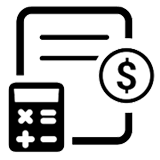What are Digital Assets?
Overall, a digital asset is a tangible or intangible asset that is dematerialized and converted to a investment tool that HSC utilize to hold and sale community investment stock and bonds in digital form that comes with a distinct usage right, or distinct permission for use.
What types of Digital Assets does HSC Handle?
HSC deposits and clear pass-through Digital Assets that are issued as current or fixed-income securities under UCC8-501.
They are pass-through security is also known as a “pay-through instrument” or “pass-through certificate” which is technically a non-bank CD Certificate of Deposit as evidence of interest or participation in a pool of assets that signifies the transfer of payments to investors, as cash settlement within investors jurisdiction at their bank from proprietary trade.
How are Digital Assets Linked to Proprietary Trade?
HSC Digital Assets are classified trade financial instruments in participants’ own investment account, using their own collateral as leverage instead of using HSC or any other banks’ CDs or money. Digital Assets are produced from two or more financial instruments as bonds and equities held on deposits as electronic data.
- Bonds are debt awarded to project documents and obligations.
- Equities are stock or cash rewarded to business and community programs as investment.
Digital Assets can be any valuable document stored in digital form with distinct equity and entitlement in reference to two standard asset classes.
What Are Asset Classes?
Asset has two standard classes:
- Tangibles Assets – Documents representing physical assets such as land, vehicles, equipment, and inventory.
- Intangibles Assets Documents representing non-physical brands, patents, trademarks, and copyrights
Are Digital Assets Legal Currency?
Yes, Digital Assets are digital funds that are independent legal currency of issuers that hold assets and property for the benefit of businesses or organizations. Digital Assets holds legal title to stored real assets. Securities is commercial paper or fixed investment funds that reference businesses, property, and other types of community investments.
How are Digital Assets Created?
Digital Assets are created by project development, contracting, underwriting, and sold to local investors internationally. They are underwritten a pledged to HSC Agents as underwriters and Trustees. Participants will form a three-party contract and agreement that falls into one of the following categories:
- Grantor: The member who established the treasury fund and put the money, stock, business, or other assets into it.
- Beneficiary: This is the members as a business, group, or organization intended to benefit from the funds. They do or do not own the business property and have the right to receive the benefit of the property as the agreements allow.
- Trustee: The person that is responsible for third-party due Diligence of Securities that is held by Grant Facility as corporate trustee in relationship with business partners or organizations.
What Are Digital Assets Benefits?
Establishing a Digital Assets for your business or organization as designated beneficiaries can provide substantial benefits if you plan on investment assets.
Those benefits include:
- Protecting your beneficiaries: If your business lacks organization management and funding, a Digital Asset can hold and looking after the assets on your business their behalf. If you are setting up a treasury fund for minor children, you can set up a business so that the assets are released to them when they reach a specified age.
- Asset protection: Putting your hard assets class in a Digital Assets can ensure that other parties cannot take the assets from your beneficiaries. For example, if you set up a Digital Assets for one of your family estate and after you die, the Digital Assets can be structured to ensure the spouse has no claim on the assets.
- Reducing the estate tax: The federal estate tax is applied to an individual’s assets when they die. By placing your assets into a Digital Assets before you pass away, you minimize the size of your estate and can substantially reduce or eliminate the estate tax due.
- Avoiding probate: Probate is the process through which your business assets are distributed to your beneficiaries by a probate court. While the process ensures that your beneficiaries receive what they deserve, probate can be time-consuming and expensive. Asset classes placed into a Digital Assets will usually pass to the beneficiaries outside of the probate process.
What are types of Digital Assets?
The type of entity established by the grantor will depend on their goals in establishing the Digital Assets and the benefits they seek for their beneficiaries.
How are Digital Assets governed?
Digital Assets are governed on the conditions of the contractual agreement of community participants based on the vesting conditions. In some cases, your state’s laws may also govern the how Digital Assets are created, as well as how Digital Assets are held and distributed as book entry securities.
How does Book-Entry Securities Work?
Book entry is a method of tracking ownership of Digital Assets where not physically certificate receipt is given to member or investors. Digital Assets are tracked electronically, rather than in paper form, allowing members to trade or transfer funds without having to present a paper certificate as proof of ownership. When an investor purchases business members equity or bonds a security, they receive a receipt and certificate, and the information is stored electronically.
How are Digital Assets cleared with the HSC?
Digital Assets are electronical transferred via HSC Investment Banking as Clearing Corporation and “Transfer Agent” and transmitted to the bank for Electronic Fund Transfer as “Settlement” via EFT. HSC as corporate trustee sends electronic funds and payment orders, remittance advise to a Depository Bank to credit investment bank account for reconciliation and ecash payment conformation, after deposit is made the payment order is returned or cancels; and amortized with HSC Banking.
What are HSC Digital Assets classifications?
Digital Assets are grouped into three classifications:
- Governmental – used for “Special Districts” to support (public or private governmental) operations and activities.
- Community – used for organization or business-type activities.
- Family Business – used for family business commercial resources and expenses.
Note: All above resources cannot be used to support HSC own programs and must meet community mission. All Digital Assets provides guaranteed investments for a fixed amount of time (usually several months to several years) as current assets.
How are Digital Assets Related to Bank Accounts?
Digital Assets are custody of securities and security agreements in connection between members commercial bank account as demand deposit with banks under the Uniform Commercial Code (UCC) rules; defined as a demand, time, savings, passbook, or similar account maintained with a banks. These bank deposit accounts represent credit granted and liquidated of tangible and intangible property right as “equity value,” that is electronically transferred and stored with the bank as collection. The electronic funds are past through to accountholders. Digital Assets are represented as an instrument within custody with HSC as lender, clearing agent, transfer agent, and sender.
What are Digital Assets accounting rules?
Digital Assets are account receivables with guarantee from community and business certification of funds that backed by intangible or tangible assets. Digital Assets are current or fix assets include ecash, digital cash equivalents, accounts receivable, stock inventory, private securities, community currency held within general ledger accounting book entry of record, as asset account receivables or payables. Overall value is a record of grouped assets that are pooled together into a process called securitization.
Are Digital Assets Paid In-Kind Barter?
Yes, as Paid in kind Digital Assets are acts of sales and security agreements backed by real asset value, that pays equity value and bond interest as dividends to counterparties members as stock grant allocated for bank settlement. Digital Assets gives account beneficiaries equity value of bartered assets as leverage that can be exchanged for cash book entry.
Who are Digital Assets administrators?
Digital Assets are managed by HSC board of fiduciary officers.”
What is the duration?
Digital Assets are commonly as short as three months or as long as five years. Long term are available for selective projects.
Projects may also be subject to insurance fees period before you can get a Assurance agreement on those terms. Unlike a bank and conventional credit union account, when you create a Digital Assets, your opening a securities investment account, which can be insured by Grant Facility clearing for Investors and business members. Digital Assets offer investor guarantee as insurance for large deposits and community investment pools under surety bonding or default insurance.
Can Digital Assets Earn Interest?
Yes, here’s where Digital Assets can work to investor member advantage. Interest is gain from Digital Assets funding to investment projects. While assets classes are with Digital Assets it has the opportunity to earns long term interest. This is denoted as annual percentage yield, or benefit. Generally, bond rates will vest on how much investors are willing to invest and how long it matures. Larger amounts and longer terms mean you’ll earn more interest and benefit. However, it’s important to note that the profitable interest earn is considered taxable income. However, some Digital Assets benefits are nontaxable.
How Does a Digital Assets Agreement Work?
Digital Assets is similar to regular bank CD deposits by a deposit agreement or contracts, somewhat like a deposit slip made available by your regular bank. However, Digital Assets is a security agreement as a electronic grant and bond attachment that’s classified as a lien on business property title in storage. Asset property titles are excepted and stored as Digital Assets within HSC books, as third-party email service provider and block chain servers as a digital asset. Accountholders are provided a source of funding for business or community investment project. In the meantime, Digital Assets acts as a store of value for amortization based on principal digital asset at a fixed or variable rate of interest for investors until the end of the contract. In general, Digital Assets can stabilize or increases with the length and size of the investment.
A Digital Assets requires one lump-sum in kind investment. Any digital asset made with in the account will receive the guaranteed rate for the duration of the contract. There are often minimum and maximum requirements about how much an asset can be invested during the window.
Second, like bank CDs, Digital Assets does not allow early withdrawals on capital asset projects under certain circumstances before the contract expires. For example, if investors experiences some sort of hardship or financial distress. A Digital Assets generally carry early withdrawal administrative and account fees to protect business investors interest.
How are Digital Assets design?
Digital Asset overall is a financial instrument that issue an Act of Sale as pledge of equity with an attached Security Agreements,” with Guarantor of Payment of interest to investors.
Are Digital Asset Crytocurrency?
Yes, but not just in the sense of decentralized block chain currency. Digital Assets are centralized and decentralized data. All stored data is generally a created token that’s stored digitally on HSC Investment Bank centralized secured cloud server, and is identifiable and discoverable, and has or provides value on a general ledger; but is also electronically decentralized stored on accountholder external ledger of choice either cloud ledger or blockchain ledger. Overall it stored based on the accountholder choice.
Can You Make Changes?
Digital Assets participants act as Grantor Beneficiary within special districts that have the option to make certain changes to the account in trust through HSC Banking. These can include naming a successor treasurer or another beneficiary. An account holder may elect to close the account or open a subsidiary account to which he or she can transfer some or all of the assets in the account in trust. However, the Treasurers are obligated to follow the instructions of the document that established the account in trust.
What are the risk associated with Digital Assets?
The biggest risks associated with Digital Assets are investor liquidity loss or credit default on grant procurement and interest. When investment profit and interest rates are falling, there may be business investor deposit loss. When procurement rates are increasing, there may be more gain.
Also, Digital Assets with fixed rates are vulnerable to inflation. For example, there is a possibility that purchasing a five-year agreement will eliminate the opportunity to earn higher returns if procurement and interest rates rise during the holding period. These risks do elevate the overall risk of the value in Digital Assets itself, which is why finance examiners will evaluate accounts, deposits and agreements. Along with Digital Assets policies and practices related to investment activity.
Some Digital Assets holders are employees and business owner. In the case of employee, they are open as an Employment Grants, Equity or pension plans at work. Also individual an business investment grant or bonds.
Most accounts typically provide non-conventional funding. As a proprietary fund, FDIC does not insure them, nor are they backed by the full faith and credit of the U.S. government. Instead, Digital Assets are backed by proven community service of Digital Assets members holding digital asset equity.
Are Digital Assets Insured by FDIC?
No, Digital Assets are stored value in kind deposits and not insured. However, investors can have their asset deposits insured with available third-party bank deposit insurers. Also, if account holders have cash with intermediary banks, they are FDIC insure up to $250,000 each deposit.
Note: Each depositor’s assets can be insured separately up to the insurance limit, and separately at each bank. All amounts that a particular depositor has in accounts in any particular ownership category at a particular bank are added together and are insured up to $250,000.
The owner of a revocable Trust Account with their bank is generally insured up to $250,000 for each unique beneficiary (subject to special rules if there are more than five of them). Thus if there is a single owner of an account that is specified as in Trust Account for (payable on death to, etc.) three different beneficiaries, the funds in the account are insured up to $750,000.
Are Digital Assets legal investment securities?
Yes, Digital Assets are legal digital asset with security that are federal and state registered as proprietary fund agreements. Digital Assets are a type of mezzanine financing vehicles, where they have characteristics indicative of debt and equities. They pay a relatively high rate of interest but are considered risky. Due to new projects that have above-average risks; Digital Assets as a Bond offer higher interest to investors for leveraging of Funds.
Digital Assets give community and government investors a chance for margin delay making dividend payments in cash and in return for the delay, Digital Assets beneficiaries typically agrees to offer a higher rate of return on them.
Example of How a Digital Assets Work within Community Districts :
To illustrate how Digital Assets work, HSC imagine an HSC agents issues a community investment for a special district with Fair Value of 2 million and offers stock worth $2 million. Digital Assets have a 10% interest rate for Community investors and compensation payment for the fiduciary that mature at the end of a ten year period. Each year, the account incurs $200,000 in Community investor interest and fiduciary work compensation income.
However, instead of being required to repay that amount in one lump sum all interest payment and compensation fees are deposited within different sub Beneficiary Account. As a result, by the end of the first year, the beneficiaries will expense over $2.2 million and that amount continues to grow until shares or bonds matures, at which time the cash settlement is due to investors.
What can Digital Assets be used for?
Digital Assets are based on a business or organization bond obligation as a non profit community service as collateral secured by tax credit for interest lost on funds. Digital Assets only cover project, labor, inventory expense, accounts payable, equipment, intangible or tangible property CAPEX accounted by the project budget.
What is a Digital Assets Trade and Barter?
The above phrases applies to accepting cash alternatives for tangible or intangible assets as work or services. For example, a farmhand who is given “free” room and board instead of receiving an hourly wage in exchange for helping out on the farm is an example of Digital Assets payments.
Are Digital Assets Taxed?
Yes and No, Digital Assets are non-taxable debt and equity that used entirely on community project, however if the bond investors earn a profit outside the community project, the IRS requires investors who receive ROI income and report it on their income tax return. For example, if a member accepts a dividend in project investment for sales or exchange it is considering a gain, and he should report the fair market value of the exchange or sell, or usual fee as income on his or her income tax return.
What is the main benefit of a Digital Assets?
Digital Asset are grants that hold granted assets minus liabilities within the account, which hold Grant funding as community funding. Also called community investments, as an alternative to traditional funding.
Less unfortunate communities can greatly benefit from Digital Assets. For example, some community members might be able to get funding where they may have been denied by banks.
How to leverage assets with Digital Assets?
- Fill out an application, which may include a asset and service check.
- Review of your funding needs. If you want to move forward, you can take the account into the funding stage.
- Review of business or project as a bid to decide whether to fund it.
- Move on to the service stage
- If your project is successfully funded. You’ll make regular expense reports over the life of the account. Every expense and report you make is reviews among community key objective needs, verse proportional share issued.
How do you apply for Digital Assets?
- Consult with a HSC Agent.
- Review and chose an available account types
- Set up your investment planning and proposal.
- Composit business planning or project proposal
- Start vesting and building value in your Digital Assets
- Keep tabs of any earnings in your online account.
Does HSC charge a fee for holding Digital Assets?
Yes, HSC agents charges an “fiduciary service fee” for selective proprietary securitization methods on the asset in held, that equals about 3 to 5% of the amount of the funds gain received by accountholders.
HSC holds Digital Asset equity title as leverage using Treasury Technology that remains in HSC that gaining interest for business or community investors until closing the account. It’s important to review the terms of the account you choose before investing in a Digital Assets.
What are the type of rates
Answer.
Low rates: When issuer is under a bond obligation with investors, issuers will have relatively low rates on investment obligation. It must cover overhead costs for its financial service networks, other lines of business, and a large workforce. Digital Assets are more streamlined and typically digital native, leveraging better new technology. Thus, the cost structure is more optimized than that of traditional banking.
Origination fees: Digital Assets holders may need to pay an up-front origination fee linked with the underwriting initially. Ongoing charges depends on the total amount you of the plan projection, so a $1,000,000 fund might incur an ongoing $5000 fee.
Is the Process Difficult?
No, The application process is typically straightforward, and you can often find out relatively quickly whether or not your project is approved. Actual funding might take roughly a week (as business and community organization choose how funds are needed towards a project.
Does Credit Score Matters?
Yes and No, Yes if you’re a Guarantor providing signature Grantee of fund as investor, and no if you’re a beneficiary. Yes also if your purchasing stock on matching. Most project issues are approved, because all account is collateralized by service agreements and surety that leverage by number of Digital Assets acquired. Digital Assets can offer more options than are currently available in low-income areas. As an example, upstart requires a minimum service score for qualify of previous community service though individuals or groups with significant service history may also qualify. Yes, if you’re a Guarantor of bond offers for investments.
How Long Does It Take to Receive Digital Assets?
Digital Assets is fast, but you may need to wait a while for funding if certification is delayed and funds not cleared by HSC Investment Bank’s Chief Fiduciary Office. The process can take several days or a few weeks. If your account is funded, you receive the money electronically through ACH or Wire EFT within days.
Can a Digital Assets Help Build Credit?
Yes, with prompt service and good reporting with DUN number on your funding it helps builds your service credit. HSC reports accountholders activity to service bureaus net 30, 60, 90, which should help account holders build credit. However, if you are prone to non-feasible service, late incorrect reports or default audits on your obligation, your service credit rating will suffer. It’s crucial to make servicing your community a priority and communicate with Grant Facility if you fall on hard times.




